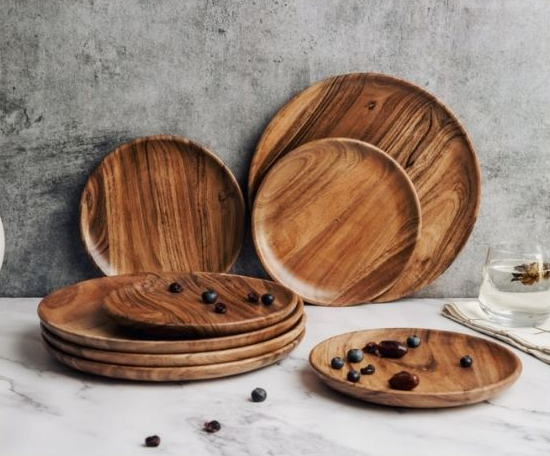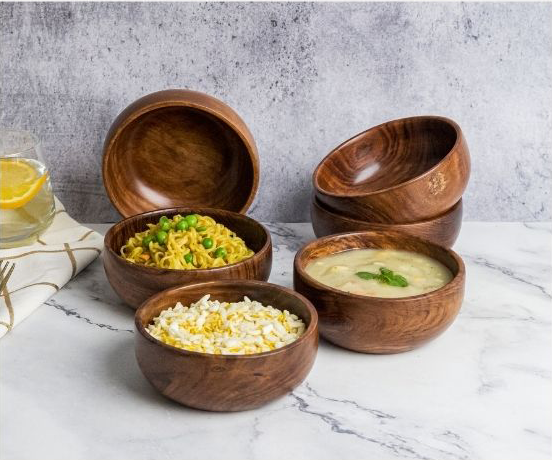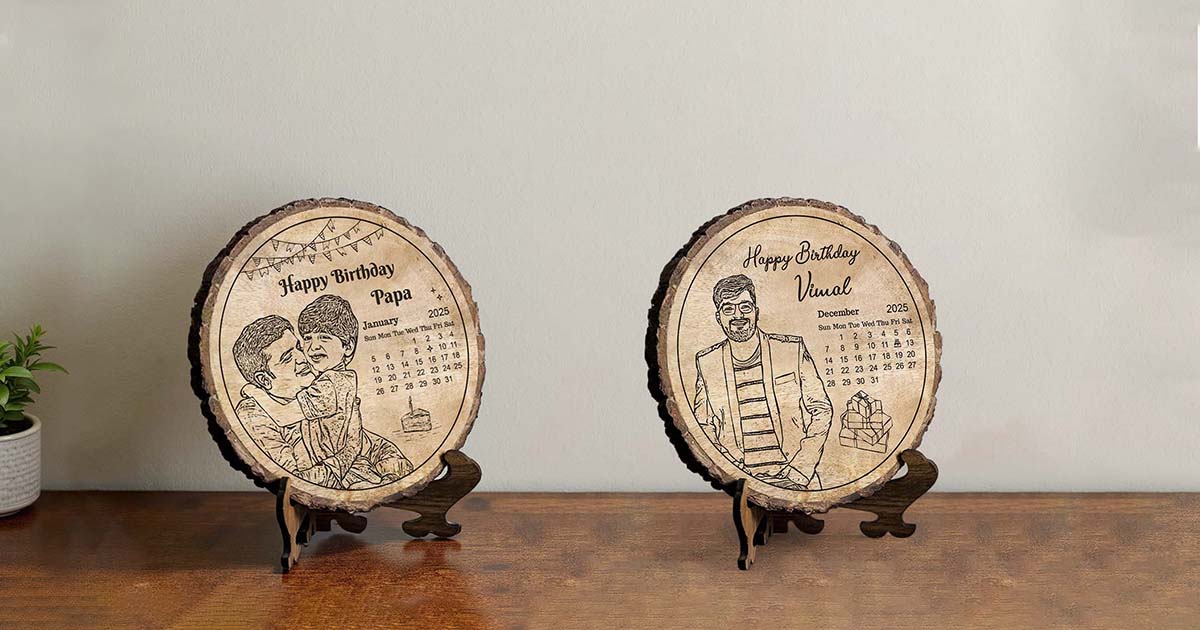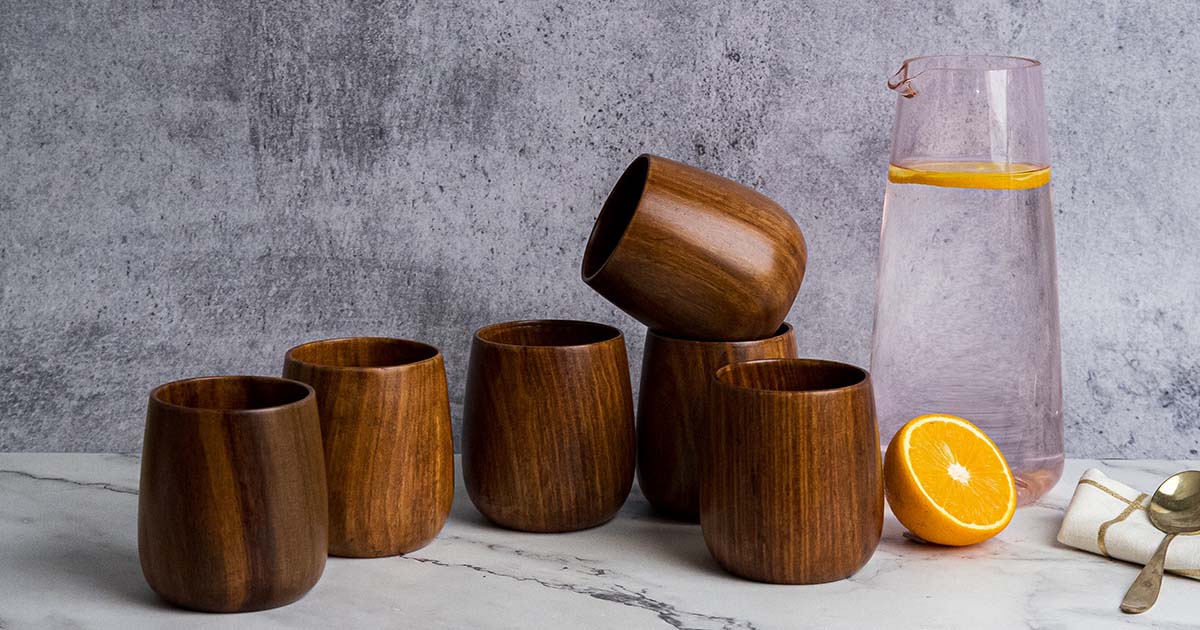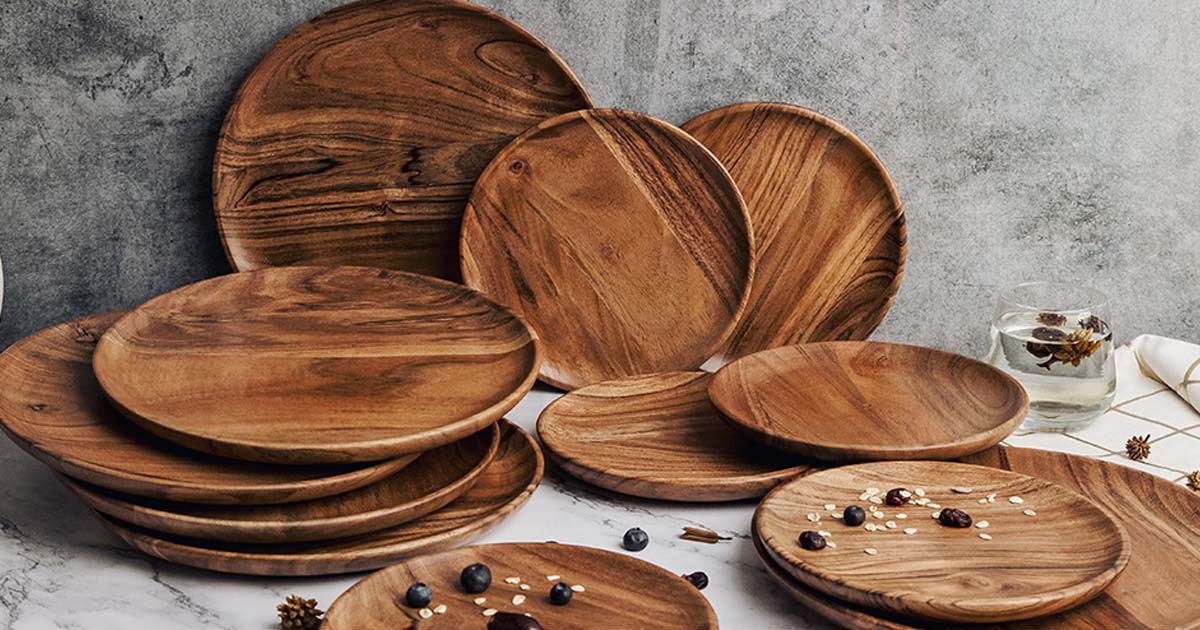
The Timeless Charm of Wooden Plates: Why Your Home Needs Them
The Timeless Charm of Wooden Plates: Why Your Home Needs Them
From everyday dinners to festival spreads and weekend brunches, the right plate can turn a meal into an experience. Wooden plates bring natural warmth, texture, and a handcrafted feel to the table—making food look better and moments more meaningful.
[Buy now → https://www.thinkartly.com/collections/plates
Shop the Wooden Plate: https://www.thinkartly.com/products/dune-acacia-plates-set-of-3-large-medium-small
== Benefits of Wooden Plates ==
• Unique & natural beauty — every plate carries a one-of-a-kind grain pattern, color variation and character.
• Lightweight & sturdy — easier to handle than heavy ceramic, less likely to chip.
• Eco-friendly choice — reusable, long-lasting, and a great alternative to disposables and plastics.
• Food-safe finishes — when finished with a food-safe oil/wax, wooden plates are safe for everyday service.
• Versatile styling — rustic or modern, wooden plates fit multiple decor styles and presentation techniques.
== Size Guide: pick the right plate ==
Choose a size based on how you serve:
• 8 in (20.5 cm) — snack or side plates (cookies, small starters).
• 10 in (25.5 cm) — salad or appetizer plates.
• 11 in (28 cm) — dinner plates (most versatile for full meals).
== Care & Maintenance ==
-
Hand wash only — mild soap, lukewarm water. Rinse and dry immediately.
-
Never soak or use dishwasher/microwave — prolonged water exposure or heat damages the wood and finish.
-
Oil occasionally — apply a thin coat of food-safe oil (mineral oil, fractionated coconut oil, or a beeswax/oil blend) every 3–6 weeks depending on use. Wipe off excess and let it absorb.
-
Avoid prolonged acidic contact — very acidic foods (like raw citrus or vinegar) over long periods may dull the finish.
-
Storage — keep in a dry place away from direct heat or constant sunlight.
== Where wooden plates shine ==
• Everyday family meals — add warmth to daily dining.
• Entertaining — create Instagram-ready platings for guests.
• Gifting — meaningful housewarming or wedding presents.
• Outdoor dining — lightweight and travel friendly for picnics and camping.
• Multi-use — decor trays, cheese boards, or vanity catch-alls.
== Quick comparison: Wood vs Ceramic vs Plastic ==
• Wood: warm, natural, durable, eco-friendly option (requires hand care).
• Ceramic: glossy, traditional, often dishwasher safe (can chip/crack).
• Plastic: lightweight and inexpensive, but varies widely in quality and environmental impact.
== FAQs ==
Is the finish food-safe?
Yes — use only plates finished with food-safe oils/waxes. (Replace this line with your product’s exact finish: e.g., “Mineral oil + beeswax finish.”)
Which wood do you use?
[Replace with your wood—e.g., mango, acacia, teak—or say “sustainably sourced mixed hardwood.”]
Can I cut on the plate?
Light cutting is okay, but we recommend using a dedicated cutting board to keep the plate’s surface pristine.
How often should I oil it?
Every 3–6 weeks with regular use, or whenever the wood looks dry.
Will wooden plates retain smell or flavor?
When properly finished and conditioned, wooden plates do not retain strong odors or affect food flavor.
== How to style & serve (3 quick ideas) ==
-
Minimal breakfast: fresh fruit and a spoon of yogurt — let the plate’s grain be the background.
-
Rustic dinner: serve grilled vegetables and a lemon wedge; use fresh herbs for color contrast.
-
Party platter: arrange cheeses, nuts and dried fruit—label items with small tags for a polished look.
== Call to action ==
Ready to bring warmth to your table?
💡 Special Offer:
Enjoy 10% off on your first purchase – perfect for our first-time customers! Use code: HAPPY10 at checkout.
Shop the handcrafted wooden plate → https://www.thinkartly.com/collections/plates


